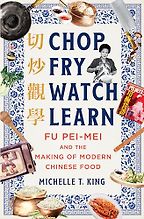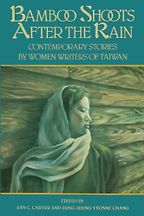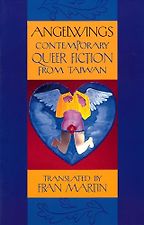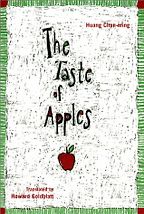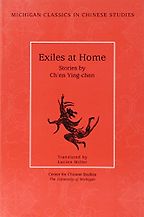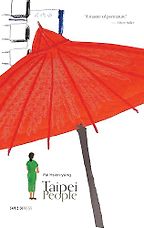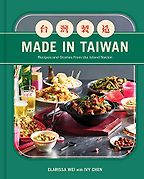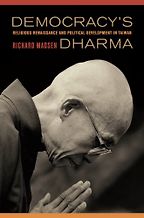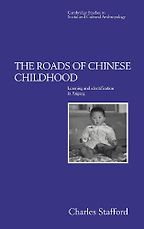Taiwan
Last updated: June 28, 2025
We spoke to British-Canadian-Taiwanese author Jessica J. Lee, author of Two Trees Make a Forest, about fresh voices in nature writing.
For children's books, we recommend Grandma Lives in a Perfume Village by prolific Taiwanese author Fang Suzhen.
“Michelle King is a historian of the Republican period, so this book is a real departure. It’s beautifully written. It’s about Fu Pei-mei who is typically described as Taiwan’s Julia Child. But as Michelle King points out, Fu Pei-mei started her TV show before Julia Child, hence you could just as easily say that Julia Child was the American Fu Pei-mei. Fu Pei-mei was very important in introducing Chinese food and cooking to audiences in Taiwan as that country was developing. Her cookbooks sometimes came out bilingually, so they introduced Chinese food to Western cooks as well, and she included European dishes in her shows, so the cosmopolitanism went still further.” Read more...
Jeffrey Wasserstrom, Historian
“The collection offers an extraordinarily broad range of stories by 14 major women writers. A few are émigrés from the mainland; others the daughters of émigrés. Some would identify as Taiwanese, and two, Eileen Chang and Hsi Hsi, never lived in Taiwan but profoundly influenced women’s writing there. The stories address a great breadth of topics, and they employ a rich array of storytelling forms. The narratives span the early twentieth century through the 1980s. Major themes include the predicaments of wives and concubines, new responses to women’s sexuality, the horror of the Cultural Revolution on the mainland, women’s changing social roles, and the alienation of youth. One story highlights the clash of Western colonial privilege with Chinese poverty in Shanghai. Another gives a nuanced portrait of a male character, the husband, who forgives his disgraced wife in the face of his family’s rejection. Several works explore the challenges of ageing, retirement, and intergenerational households—both pre-revolutionary and during Taiwan’s modernization. Whereas most depict the difficulties of isolation, “Journey to Mount Bliss” celebrates an elderly widower who finds love and then his family’s blessing in remarrying.” Read more...
Sabina Knight, Literary Scholar
“This collection bore testimony to the courage and sophistication of queer fiction in Taiwan during the 1990s. Taiwan has for decades been on the forefront of LGBTQ rights in Asia. (Taiwan legalized gay marriage in 2019, the first Asian country to do so.) In Angelwings, Martin collected and translated ten stark stories published from 1989 through 1998. The stories’ significance also lies in their formal control of stormy psychological conflicts. Trauma threads through many of these stories. Two of the most powerful stories focus on troubled mother-daughter relationships. In Chen Xue’s “Searching for the Lost Wings of the Angel,” the protagonist struggles with hostile ambivalence after her widowed mother turns to prostitution. Through a lesbian affair, the protagonist learns that she could be worth loving, that she loved her mother, and that she can reunite with herself as her lover encourages her to finish the story we are reading. Then she awakes to realize that her lover was a dream.” Read more...
Sabina Knight, Literary Scholar
“Huang Chun-ming’s stories are early masterpieces of nativist literature. Nativist writers sought to represent the daily lives of ordinary Taiwanese, particularly the underclasses in rural Taiwan. These writers were dedicated to depicting social injustices and to building up a Taiwanese identity. In these ways the Nativists were pushing back against the KMT’s strict control over culture.” Read more...
Sabina Knight, Literary Scholar
“Eight of the nine stories in this collection were published in the sixties, before Ch’en’s incarceration from 1968 to 1975. Yet his sympathy with socialist ideals already comes through. At the very least, the stories evince his conviction that fiction should be based in social conscience. Several are highly critical of the perils of intellectualism, capitalism, materialism, and U.S. influence on Taiwan. One directly denounces the American-Vietnam War. Some critics see some of Ch’en’s earliest stories as overly preoccupied with romantic nihilists, but I read them as a rebuke to the leisure classes. What’s powerful is the character development in certain stories, as when a sister struggles after her anarchist-nihilist brother’s suicide. One story, “A Couple of Generals,” brings together an older mainlander and a Taiwanese woman, a subject Ch’en treated elsewhere as well.” Read more...
Sabina Knight, Literary Scholar
“Many consider Taipei People not only Pai Hsien-yung’s finest work but among the most exquisite stories of all of modern Chinese literature. Pai combines highly literate semi-classical Chinese with techniques of modernism, especially interior monologue. The narratives also pay intricate attention to symbolism, particularly of light and color. The collection centers on the decadent world of Taipei’s Shanghainese exiles. In many of the stories, the mainland émigrés’ attempts to recapture the past reveal the power and dangers of nostalgia. Whereas most of the tales present an image of leisure, comfort, and gentility, the narrators’ accounts often subtly undermine the splendor of the émigrés’ world. The reader is often left with a sad vision of moral decay. Or at least with a sense of lost glory and forsaken dreams.” Read more...
Sabina Knight, Literary Scholar
“It makes the case for appreciating Taiwanese food as something that can’t be thought of as a subset or distillation of Chinese food. It is a cuisine in which some dishes are heavily influenced by versions that existed in China, but for centuries Taiwan has had a separate historical trajectory, which has sometimes been tightly connected and sometimes at most only loosely connected to the Chinese mainland. It has been influenced by indigenous traditions and by other parts of the world, especially Japan, and includes versions of ingredients that aren’t found on the mainland…Wei clearly has an interest in thinking about this as a story not only about food, but also as a gateway into thinking differently about Taiwan – not thinking of it as a place temporarily separated from China, but as a place with its own history going back for centuries and which has also been a self-ruled country since the late 1940s.” Read more...
Jeffrey Wasserstrom, Historian
“Richard Madsen is one of the pioneers of Chinese religious study in the West. He has looked at many different practices, and written a lot about Catholicism, but in this book he looks at Taiwan’s political democratisation in the 80s. He shows that Buddhist groups like Fo Guang Shan, Tzu Chi and Dharma Drum Mountain were all part of a rise of civil society – somewhat similar to the Catholic Church in Poland during the Cold War, helping to undermine authoritarian control, but indirectly. There wasn’t a figurehead like Pope John Paul II, but they did help to pluralise society, and to spread ideas of equality. When I was in Taiwan in the 80s and 90s, people were starting to complain that the government shouldn’t be able to park their cars illegally, or to embezzle money. Some people in China think that, but they don’t speak out as openly about it as people in Taiwan did.” Read more...
“This is a book that I’ve gone back to again and again over the years. Charles Stafford is trying to give you a sense of the ordinary, everyday processes of learning in a fishing village in Taiwan, so at a very localized level. The everyday practices are very focused on building a sense of filial responsibility and duty towards your family, about reciprocal roles and obligations. That’s how you become a moral person. It’s not done through explicit teaching, it’s done through ‘ostensive learning.’ Cultural acquisition through everyday interactions is key. As a route to adulthood, he contrasts that ordinary knowledge with the explicit knowledge that’s taught, in a much more organized fashion, in school contexts — where they’re trying to teach children to be a part of a nation.” Read more...
Jo Boyden, Development & Aid Workers (see also Economists)
-

1
Taipei People
by Pai Hsien-yung -

2
Bamboo Shoots After the Rain: Contemporary Stories by Women Writers of Taiwan
by Ann Carver (editor) & Sung-sheng Yvonne Chang (editor) -

3
Exiles at Home: Stories
by Ch'en Ying-chen -

4
The Taste of Apples
by Huang Chun-ming -

5
Angelwings: Contemporary Queer Fiction from Taiwan
by Fran Martin (translator)
Short Stories from Taiwan, recommended by Sabina Knight
Short Stories from Taiwan, recommended by Sabina Knight
With careful literary crafting, Taiwan’s writers have told the complex story of their country since World War II. Sabina Knight, a professor at Smith College and author of Chinese Literature: A Very Short Introduction, recommends five of her favourite short story collections.
